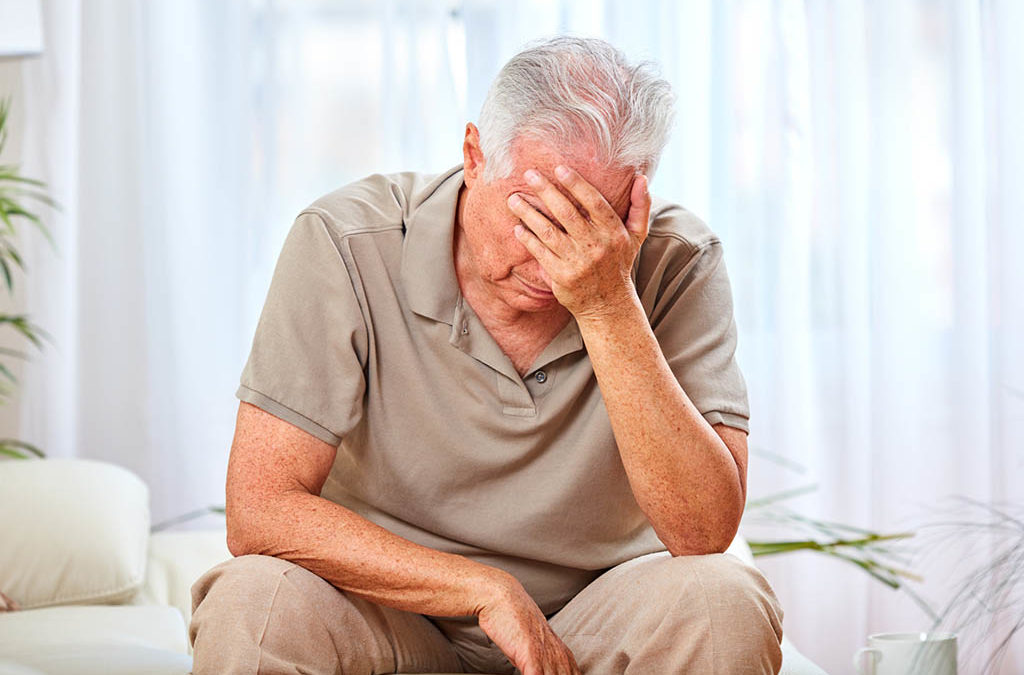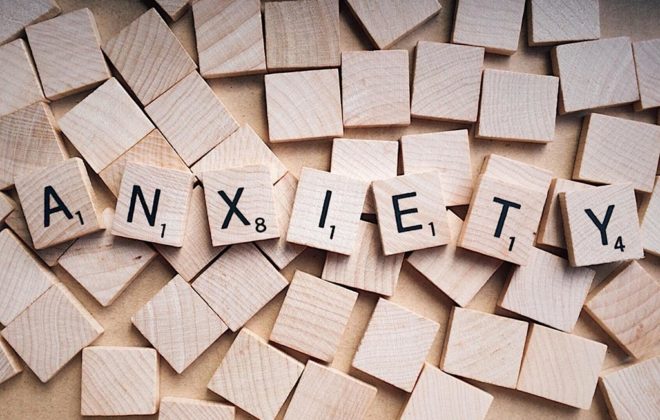Is COVID-19 Increasing Depression?
Mental health problems affect many people, but is COVID-19 increasing depression amongst the population? Here we look into this question.
No one knows the lasting impacts that COVID-19 will have on the future health of Canada or the world at large.
But one this is certain: It’s not just our physical health that’s felt the impact.
Our mental health has also felt the toll of this pandemic.
How will a future of quarantines, physical distancing, and remote working conditions affect our happiness and emotional health?
Initial research shows that concerns about COVID-19 increasing depression are justified. But why and how is depression changing? And what can we do about it?
Let’s take a look.
What Do the Numbers Say?
Depression and anxiety are already prominent mental health illnesses in North America. Both of these conditions can be clinically diagnosed, but are often based on a person’s overall symptoms.
Symptoms of depression primarily include severe sadness and loss of interest in activities or hobbies. Depression can also have physical symptoms like appetite changes, lack of energy, or unexplained muscle pain.
Symptoms of anxiety can be similar, but most people with anxiety experience severe worrying and agitation. Anxiety can also cause fatigue, panic attacks, and muscle soreness.
Recent studies show that while older adults are more vulnerable to the effects of the disorder, they actually have lower rates of depression and mental illness than younger people. However, they’re still at risk for the negative effects of physical isolation.
Adults under the age of 40 are most likely to experience symptoms of depression due to the pandemic. And adults under the age of 25 are the most stressed and anxious about the long term effects of the virus.
So, while the older adults are feeling the physical impact from COVID-19 in Canada, it’s the younger adults that are suffering from mental health issues.
The Connection Between COVID-19 and Depression
The number of people showing signs of depression is reason enough for concern. However, statistics only show part of the picture.
Why are the rates increasing? Why are certain groups more heavily affected?
Although we can’t know those answers for certain, convincing evidence is starting to show itself.
Here are a few of the reasons social psychologists believe COVID-19 is causing an increase in mental health problems.
1. Fear
People are afraid.
They’re afraid of contracting the virus. And they’re afraid of infecting those they care about.
Living with constant fear and anxiety of illness can contribute to depressive symptoms. Difficulty concentrating, trouble sleeping, and changes in eating habits are all symptoms of depression; and COVID-19 may only be making these symptoms worse.
2. Financial Uncertainty
Though many things in our life have stopped due to COVID-19, our month bills have not.
Many are jobless, and even with the Canada Emergency Response Benefit (CERB) making ends meet may be more challenging than ever. This is especially true for people living paycheck-to-paycheck, and those without any savings to help them during this time.
Individuals with lower incomes are more likely to experience financial troubles and stress, and are more likely to have their mental health affected as a result.
Worrying about paying rent, putting food on the table, keeping the lights on, paying for medication, the list can go on and on; it’s easy to see how a lower income person may be feeling the mental toll that this stress is having on them.
3. Physical Distancing and Social Isolation
One of the most powerful tools in stopping the spread of COVID-19 is physical distancing. But that can present its own set of challenges.
More time at home and less social interaction with friends and family can negatively impact someone’s mental health. Especially if they’ve already been dealing with depression, it can make a person feel more alone and more isolated than ever.
Humans are social creatures, and while physical distancing is helping us stay physically safe it’s also making us more depressed.
While online socializing is available (and sometimes the only option), it just isn’t the same as spending face-to-face contact with a loved one. Not to mention the lack of physical contact that usually helps our mood. Many of us are missing the physical aspects of our relationships; hugging our family members, and even high-fiving our friends can boost our mood.
Furthermore, more time spent on social media may actually make depression and anxiety worse.
4. Trauma and Grief
Daily death, and infection, tolls have become our norm.
Some have lost loved ones, while others may get triggered from hearing the news. Unfortunately, these triggers are everywhere and challenging to get away from.
The deaths are unfortunate, but the burden of moving on is placed on those left behind. And that can be a heavy burden to carry.
Tragedies and death rates can cause a wave of depression over a community. Even if someone wasn’t personally affected, widespread loss of life causes trauma and grief; and it does nothing to make symptoms of depression any better.
5. Access to Mental Health Support
This is related to physical distancing and increased isolation.
Many facilities have closed down or put increased safety measures in place, and this is makes getting the mental support you need even more challenging.
Someone that has regular meetings with support groups may suddenly find themselves going without.
Those that have been seeing therapists or counsellors, or those wanting to begin getting help for their mental health may find it challenging to schedule an appointment, or find mental health services that have availability for them.
Canadian teens were already at a higher risk of depression before COVID-19, and the current environment is only making things worse.
Fortunately, many doctors are started offering telemedicine services to help their patients, while keeping everyone safe. We should begin to see mental health professionals beginning to do the same.
Resources for Depression
For those with depression, it’s important to remember that you’re not alone. And there are resources available to help you manage your symptoms of depression, and live life again.
Educating yourself about the symptoms of depression can help you recognize them in yourself and loved ones, and is crucial before the process of healing can begin.
Some helpful resources for Canadians struggling with depression:
Education is one thing, but sometimes the best medicine to speak to a professional.
The first option is to schedule an appointment with a doctor. Most medical professionals are holding telehealth appointments over the phone or video conference. Depression is a serious health concern and doctors are there to help.
Virtual visits are easy to schedule and attend without leaving your home. They offer the same level of privacy and anonymity.
Mindfulness is another useful practice to reduce the symptoms of depression. Meditation or mindfulness apps or classes are available online and many of them are free. Taking time to be grateful and live in the moment can reduce overall stress contributing to depression.
Other strategies include maintaining a healthy diet and exercising. Taking time to care for your physical health will also improve your mental health.
Responsible, socially distant gatherings may help individuals struggling with feeling lonely or isolated.
COVID-19 & Depression: All is Not Lost
The current state of the world is causing people to feel uncertain, scared, anxious, and sad. People all over the country are doing their best to adjust to a new “normal”, but sometimes it just isn’t enough.
The fear of infection, financial uncertainty, increased time alone, and the trauma and grief surrounding us can easily bog down our minds… and our mood.
But you’re not alone.
There are still many resources available to help you through this difficult and uncertain time. Mental health professionals are still able to support patients online through telemedicine appointments.
Speaking to a mental health professional will help calm you, and together the two of you can figure out a plan to getting your mental health back on track.
Dealing with depression isn’t easy, but it is possible.
If you or someone you know is experiencing mental health issues, reach out to a medical professional for help.>
If you’re ready to book an appointment, or just want to learn more, don’t hesitate to contact us today.





